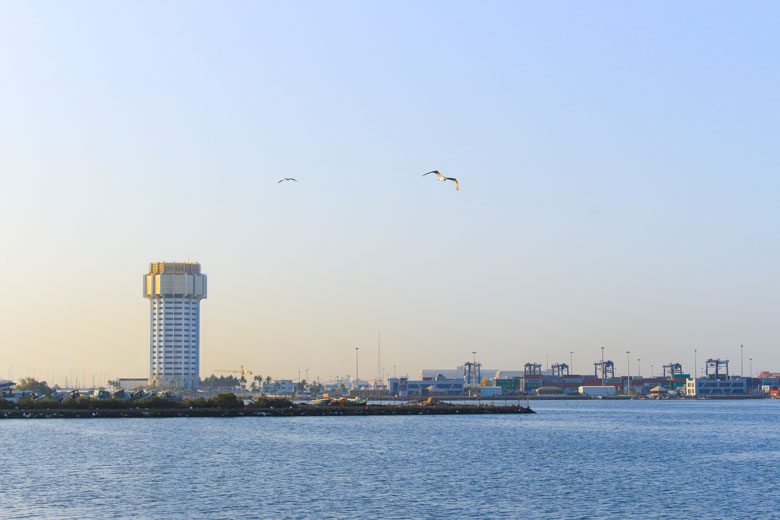

Contractors are waiting to find out whether they have been prequalified to participate in Saudi Arabia’s planned Red Sea Project.
The major real estate and tourism project, which is being developed by the kingdom’s sovereign wealth fund Public Investment Fund (PIF), received prequalification documents from contractors in October for the megaproject. According to sources close to the project, the client has not finalised the qualification list and notified contractors.
Contracts to be tendered for the tourism megaproject will include construction deals for hotels, other major buildings and infrastructure works.
PIF has awarded a contract to the Netherlands-headquartered Arcadis to provide programme management services for the Red Sea scheme.
Riyadh revealed plans to develop a tourism project known as the Red Sea Project in July last year. It was announced by Crown Prince Mohammed bin Salman bin Abdulaziz al-Saud, who said the scheme will incorporate 200 kilometres of coastline between the cities of Amlaj and Al-Jawh on the western coast of the kingdom.
Although the latest Red Sea scheme is still in the early stages and no budgets have been revealed, it has the potential to be the largest project announced since the drop in oil prices in 2014, and could offer billions of dollars of opportunities for contractors in the kingdom.
The underlying objectives are ambitious. It is aimed at repositioning the kingdom as a leading tourism destination that is not just reliant on the millions of pilgrims its holy sites welcome each year.
It aims to emulate the success of resorts in Egypt and Jordan, attracting 1 million visitors a year by 2035 and generating revenues of SR15bn ($4bn) annually. It is also hoped to create 35,000 jobs.
To support these goals, the area will be semi-autonomous, which means there will be no visa requirements for most nationalities, thereby overcoming the largest single obstacle that foreign tourists wanting to visit Saudi Arabia face today. There is also the possibility the kingdom could relax some of its conservative religious laws to attract Western tourists.
The plan to relax immigration rules highlights the importance that tourism now holds for policymakers in Riyadh. The sector has been singled out as one of the key components of Vision 2030 as it can create both opportunities for local private sector investors and jobs for Saudi nationals – two of the fundamental challenges that the strategy document attempts to address.
The Red Sea Project area is vast and includes a wide range of attractions, among them 50 natural islands, heritage sites such as the ancient ruins of Madain Saleh, mountains, nature reserves, dormant volcanoes at Harat Alrahat, coastlines and beaches.
Construction work on the first phase of the scheme is scheduled to start in the third quarter of 2019, with completion in the fourth quarter of 2022. These initial works will largely involve establishing infrastructure and the first resorts.
The infrastructure required will be substantial. There will be a seaport, roads and airports, as well as infrastructure for boats and seaplanes, and the new development areas will need water, power, drainage and telecoms infrastructure installed.
Since the launch of the Red Sea Project, the kingdom has announced another major megaproject to be built along its Red Sea coast.
In October last year, Crown Prince Mohammed bin Salman al-Saud has revealed the kingdom’s plans to build a $500bn city, which will be known as Neom.
The city will be developed on 26,500 square kilometres of land along 468km of coastline along the Red Sea and the Gulf of Aqaba. It will also cross into Jordan and Egypt. The plans also include the King Salman Bridge that will connect Saudi Arabia and Egypt – Riyadh and Cairo agreed to develop a causeway that will link the two countries across the Red Sea in 2016.
The aim of the city is to be an innovation hub that will be made more attractive to future investors and residents by creating an independent economic zone for the city with its own laws, taxes and regulations.
You might also like...

Rainmaking in the world economy
19 April 2024

Oman receives Madha industrial city tender prices
19 April 2024

Neom seeks to raise funds in $1.3bn sukuk sale
19 April 2024

Saudi firm advances Neutral Zone real estate plans
19 April 2024
A MEED Subscription...
Subscribe or upgrade your current MEED.com package to support your strategic planning with the MENA region’s best source of business information. Proceed to our online shop below to find out more about the features in each package.





